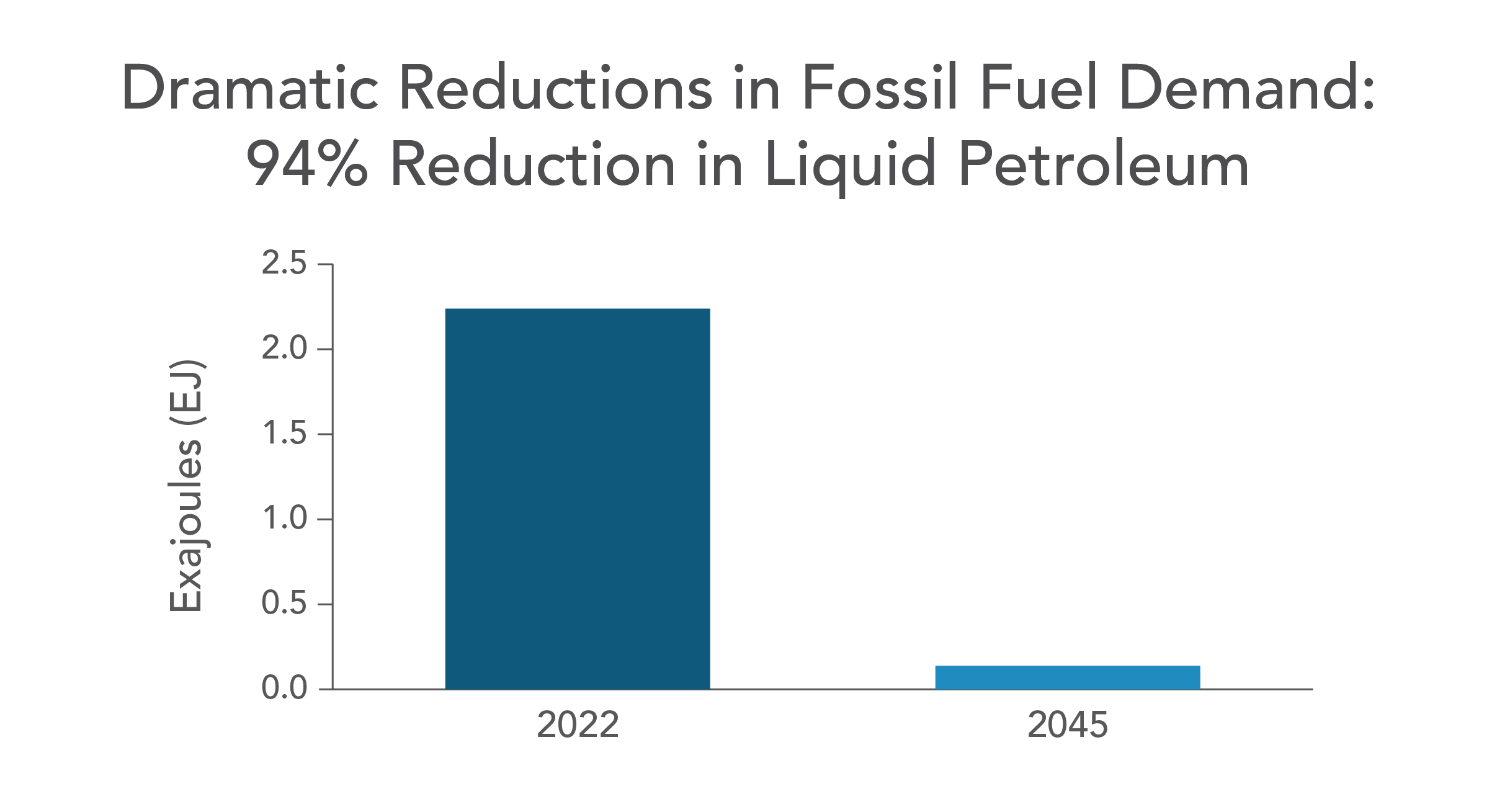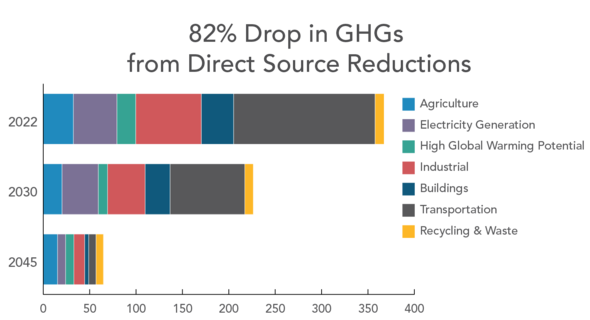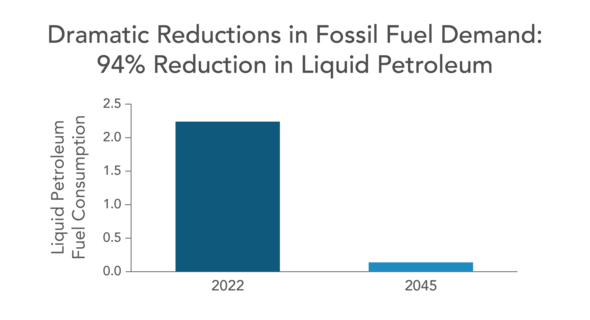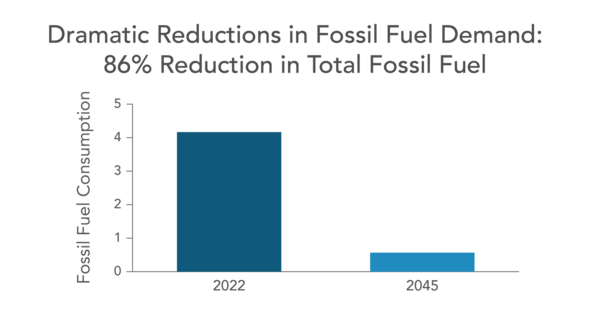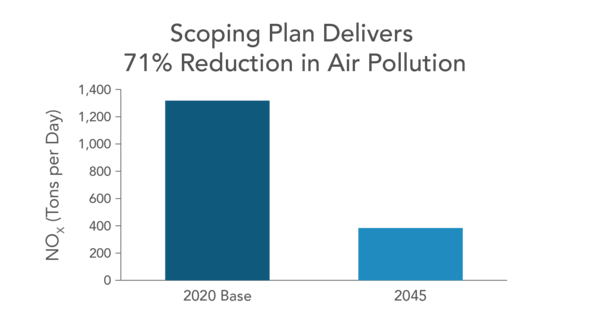The California Air Resources Board (CARB) today released its 2022 Scoping Plan for Achieving Carbon Neutrality. The unprecedented plan, if enacted into law, presents the most drastic climate change proposal in the entire world.
Photo Credit: California Air Resources Board
The major thrust of the plan is to nearly eliminate the use of fossil fuels anywhere in the state by 2045. This would assume a massive movement to electrify the transportation sector - cars, buses, trains, and trucks - which together are the largest single source of greenhouse gas (GHG) emissions in the state. It would also require the phasing out of how Californians heat their homes, elimination of certain chemicals and refrigerants, the expansion of power sources derived from wind, solar, hydrogen, and biomethane, and increased usage of Carbon Dioxide Capture and Sequestration (CCS).
If successful, the plan would reduce total fossil fuel usage in the state by 86% and a reduction in petroleum liquids by 94%. In addition to reductions of GHGs, the proposal would also reduce total air pollutants by 71%.
CARB claims that its economic modeling for the proposal shows a net economic benefit to the state, resulting in an expansion of California's economy (currently the 5th largest economy in the world and soon to be the 4th largest) to $5.1 trillion by 2045 (from $3.2 trillion today) and an increase of at least 4 million new jobs.
It will also save Californians $200 million in health care costs related to air pollution.
“California is drastically cutting our dependence on fossil fuels and cleaning our air – this plan is a comprehensive roadmap to achieve a pollution-free future,” said Governor Gavin Newsom. “It’s the most ambitious set of climate goals of any jurisdiction in the world, and if adopted, it’ll spur an economic transformation akin to the industrial revolution. While big polluters focus on increasing their profits at our expense, California is protecting communities, creating jobs and accelerating our transition to clean energy.”
Added CARB Chair Liane Randolph, "This plan delivers a massive reduction of climate-warming pollution, cutting it down to a fraction of what it is today. And by rapidly shifting away from all fossil fuels and then reaching carbon neutrality, the plan delivers public health benefits to everyone in California, most importantly to the communities suffering from persistent air pollution. This plan clearly and unequivocally presents challenging and ambitious goals, but we simply have no other choice but to meet them – and do it in less than a quarter century. We all have experienced firsthand the impacts of climate change, whether wildfires, drought, record-breaking heat waves and more. Failure is not an option. There is too much at stake and we need to move as fast and as far as we can to lessen the worst impacts of climate change and leave future generations a livable and healthy California.”
CARB's Board will vote on the new proposal at its December 15-16 meeting. The initial draft was reviewed by the Board in June and discussed with the Environmental Justice Advisory Committee (EJAC) in September. Changes requested by the Board, Governor Newsome, and the EJAC are included in the final proposal as well as requirements from new state laws passed by the state Legislature this year.
What do you think, is this proposal realistic given the proliferation of fossil fuel powered systems throughout the state and the world or is it a pipe dream based on a naive belief that other states and countries will do the same thing, particularly in those parts of the world whose governments are, shall we say, not as progressive as California?
Your comments are welcomed below.
Photo Credit: California Air Resources Board
Photo Credit: California Air Resources Board
Photo Credit: California Air Resources Board

